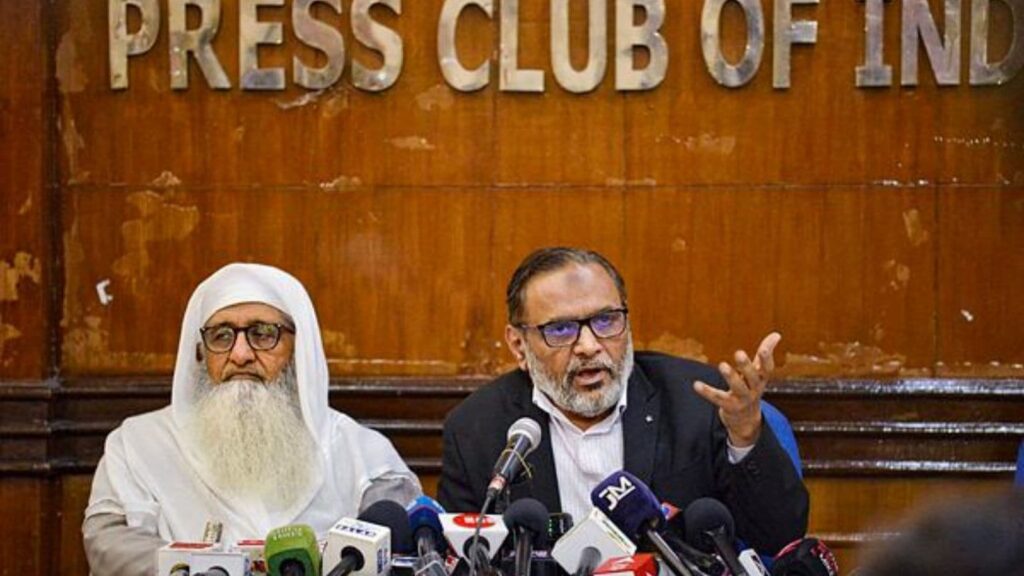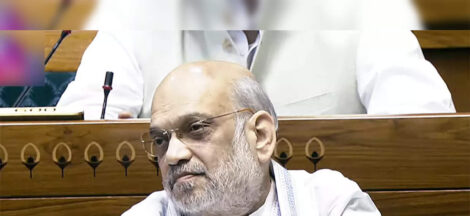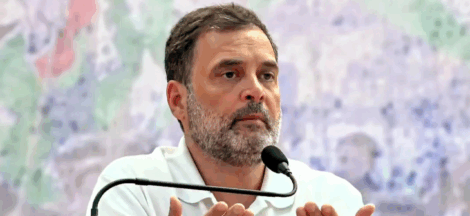The All India Muslim Personal Law Board organized a significant demonstration at Jantar Mantar in New Delhi on March 17, opposing the Waqf Bill, 2024. The board contends that the proposed legislation poses a direct threat to the Muslim community and could lead to the appropriation of Waqf properties.
The Waqf Bill, introduced in the Lok Sabha on August 8, 2024, seeks to amend the existing Waqf Act of 1995. Key provisions include the elimination of the ‘waqf by user’ clause, which currently allows properties to be designated as Waqf based on long-term religious or charitable use without formal documentation. Additionally, the bill proposes that only individuals who have practiced Islam for at least five years can declare a waqf, effectively preventing recent converts from making such declarations. The authority to survey Waqf properties would shift from the Survey Commissioner to the Collector or an equivalent officer, granting them the power to determine ownership of government properties identified as Waqf. Furthermore, the bill mandates the inclusion of at least two non-Muslim members on state Waqf boards and introduces arbitration by a government official to decide property disputes involving Waqf assets.
AIMPLB’s spokesperson, Syed Qasim Rasool Ilyas, expressed concerns that the bill aims to create divisions between Hindus and Muslims and incite unrest in the country. He emphasized that the community views the Waqf Amendment Bill as a direct attack on Muslims and their religious endowments.
The protest garnered support from various opposition parties and organizations. The Girls Islamic Organisation of India publicly endorsed the demonstration, urging its members to participate in the sit-in protest to protect Waqf properties. Karnataka Legislative Assembly Speaker, U.T. Khader, cautioned that any amendments to the Waqf Act should not undermine constitutional principles, reflecting broader apprehensions about the bill’s implications.
In response to the planned protest, Jagadambika Pal, BJP MP and Chairman of the Joint Parliamentary Committee on the Waqf Bill, criticized AIMPLB’s actions. He accused the board of attempting to mislead the public and create societal divisions, asserting that the bill aims to promote transparency and efficiency in the management of Waqf properties. Pal emphasized that AIMPLB had already presented its concerns before the committee, and those points were considered in the report. He further accused AIMPLB of trying to mislead people, stating that protesting against the amendment could incite hatred and challenge Parliament’s authority to legislate.
The Union Cabinet approved 14 changes to the Waqf Bill based on the JPC’s recommendations, aiming to enhance the governance of Waqf boards and ensure the efficient management of Waqf properties. The bill proposes a comprehensive overhaul of the existing system, including the inclusion of non-Muslim members on state Waqf boards and granting government officials arbitration powers in property disputes.
Legal experts and religious scholars have voiced concerns that certain provisions of the bill could undermine India’s secular framework. The removal of the ‘waqf by user’ provision, in particular, has raised alarms, as it could lead to disputes over properties historically used for religious or charitable purposes without formal recognition. Critics argue that such changes might pave the way for the usurpation of Waqf properties, adversely affecting the Muslim community’s ability to manage their religious endowments.
The AIMPLB’s protest at Jantar Mantar is part of a broader series of demonstrations and press conferences held across the country to oppose the Waqf Bill. The board initially planned the protest for March 13 but rescheduled it to March 17 to ensure participation from Members of Parliament, considering the Holi festival.




 Europe’s ‘Nuclear Umbrella’ Risks Catastrophic Escalation In Conflict
Europe’s ‘Nuclear Umbrella’ Risks Catastrophic Escalation In Conflict 